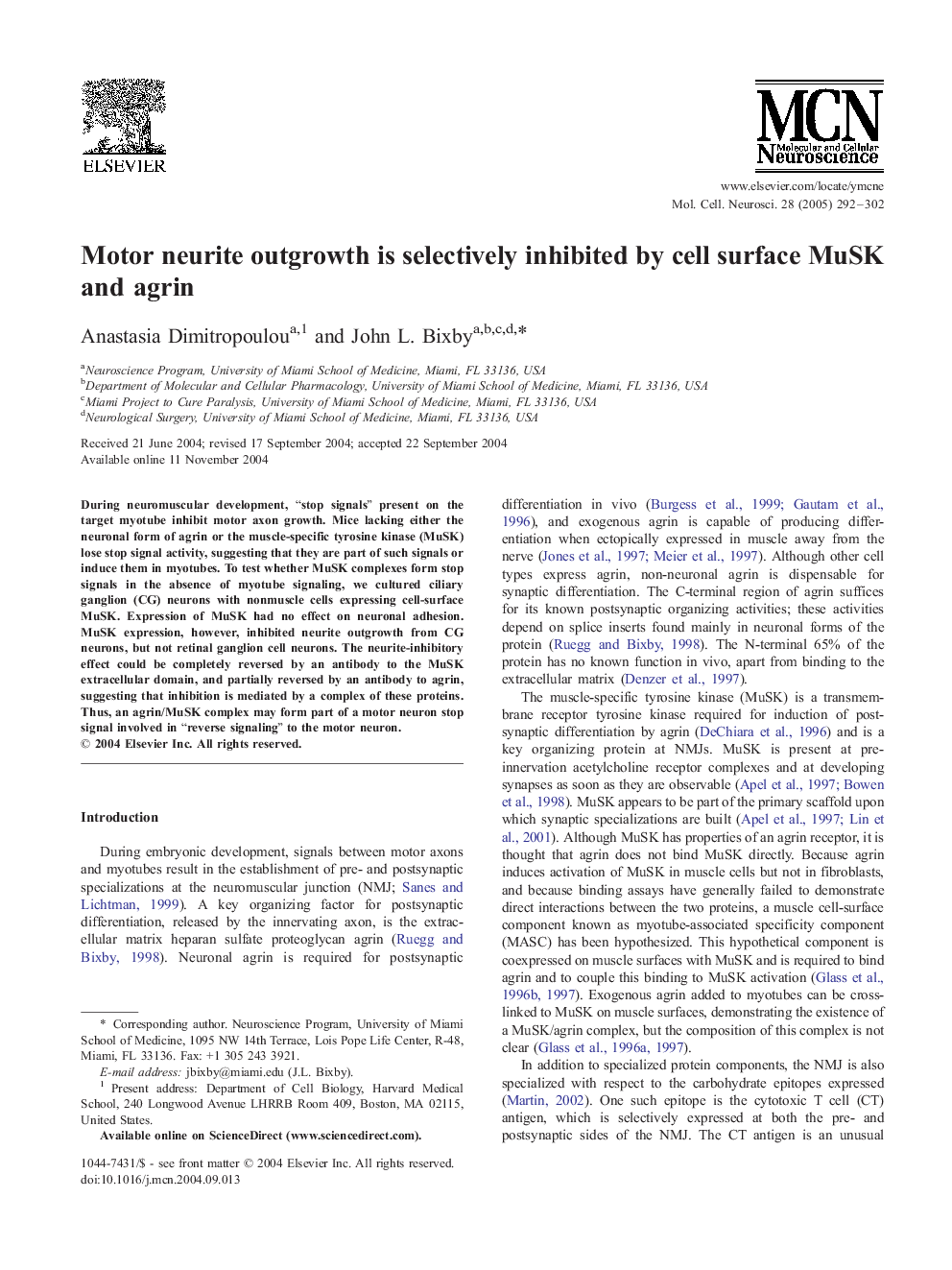| Article ID | Journal | Published Year | Pages | File Type |
|---|---|---|---|---|
| 10956875 | Molecular and Cellular Neuroscience | 2005 | 11 Pages |
Abstract
During neuromuscular development, “stop signals” present on the target myotube inhibit motor axon growth. Mice lacking either the neuronal form of agrin or the muscle-specific tyrosine kinase (MuSK) lose stop signal activity, suggesting that they are part of such signals or induce them in myotubes. To test whether MuSK complexes form stop signals in the absence of myotube signaling, we cultured ciliary ganglion (CG) neurons with nonmuscle cells expressing cell-surface MuSK. Expression of MuSK had no effect on neuronal adhesion. MuSK expression, however, inhibited neurite outgrowth from CG neurons, but not retinal ganglion cell neurons. The neurite-inhibitory effect could be completely reversed by an antibody to the MuSK extracellular domain, and partially reversed by an antibody to agrin, suggesting that inhibition is mediated by a complex of these proteins. Thus, an agrin/MuSK complex may form part of a motor neuron stop signal involved in “reverse signaling” to the motor neuron.
Related Topics
Life Sciences
Biochemistry, Genetics and Molecular Biology
Cell Biology
Authors
Anastasia Dimitropoulou, John L. Bixby,
